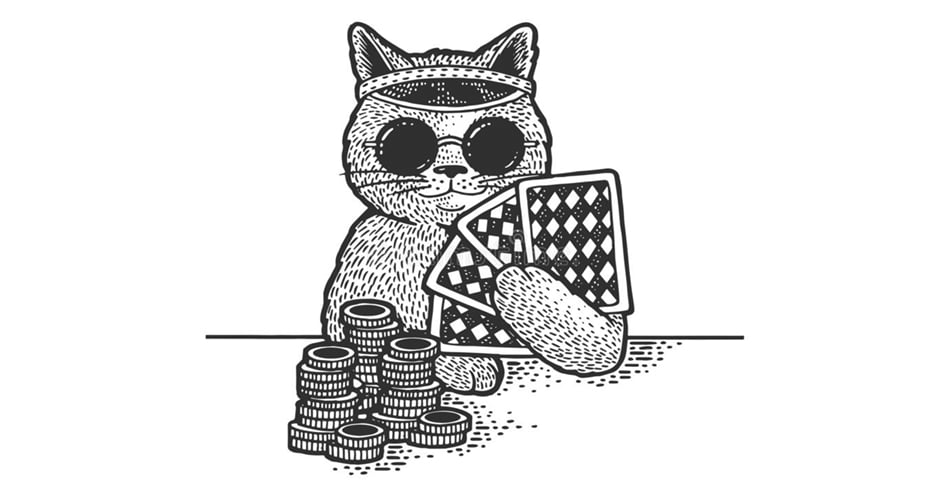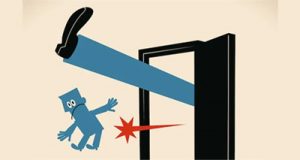For most seasoned gamblers brutally honest with themselves, they’ve come to accept the supposed number 1 rule in gambling; ‘the house always wins!’
Well, there’s always the skeptical lot, but sooner or later, that is a rule they come to accept the hard way. It’s a lesson every gambler gets to learn on their gambling journey, and the earlier you understand this rule, the smoother your future gambling endeavors might get. Simply said, you can boost your odds against the house by understanding why they win most of the time.
Now to answer your question ‘why does the house always win?’ read on to learn more!

Human Emotions
Part of being human means dealing with emotions. Unfortunately, not all these emotions play in our favor. If still unsure about that check out the ‘too emotional’ gamblers and see just how that works for them.
If you are the guy who is always chasing after your losses, without giving it much of thought simply because you are ‘too angry’, I don’t see how the casino won’t keep on winning.
Let’s say you’ve got a cool $1000 which you would want to start saving with your bank. For each year, the bank tells you will be earning 20%. This would translate to $200, and you obviously would be very happy about it. However, if you were to take a weekend trip to Vegas, entered a casino with $1000, and won $200 within less than an hour, you probably wouldn’t be satisfied.
For most players, they want more, and more. Before you realize it you make your first loss… But you are still ahead so you want to continue playing. The losses follow and before you realize it, you’ve lost it all in a matter of hours, sometimes, even minutes!
It does depend on why you were gambling in the first place. If it is for fun, well, and good because you are open to your game going either way. However, if you were hoping to make a reap off a casino, the advisable thing to do would be to walk away when you are still ahead.

Statistics show that up to 95% of players are ahead at some point in their game. But whenever one feels luck is on their side, we are tempted to push it a little further. Unfortunately, that doesn’t work out for most players.
The House Edge
The best way to understand a house edge would be by first acknowledging that a casino is a business. By that, it would mean that for them to remain operational, they have to ensure that they are running on a profit. For this, they design a small edge that will favor the house.
With the house edge, there’s nothing like a 50/50 chance. It ensures that the players’ probability of winning is slightly lower than those of the casino winning. Although the house edge might vary from game to game, it is still done with a lot of consideration to ensure that it is not set too high as it would discourage most gamblers from playing.
Examples of house edge are the number zero in roulette, or an early surrender when playing blackjack. Others examples include;
Blackjack: Casino 51% vs Player 49%
Roulette: Casino 52% vs Player 48%
Craps: Casino 50.5% vs Player 49.5%
In short, even if you made some good wins in the short run, the casino would still catch-up with you in the long-run –provided you continued playing.
The Law of Large Numbers and Gambler’s Ruin Concepts
The statistical law of large numbers may have slightly varying definitions depending on the area of use. However, in business, this law is used to show or express the relationship that exists between growth rate and scale.
In casinos, the house always wins because of the large number of bets placed. Without going too much into technical details, I will try to explain its application in casinos.
Taking roulette as an example, there are 37 numbers; 18 red, 18 black, and the number ‘0’. But even when the house has a rough edge ranging from 2-3%, it would not be a big surprise if a casino lost on some nights. However, since the edge is low, sometimes the players win and come back day 2 to keep on gambling.
In the long-run, the law of large numbers will ensure that the casino keeps on winning.
Let’s explore the Gamblers’ ruin concept in simple terms too. Assume that the outcome of a casino game has a 50/50 chance, meaning that the house edge is 0%. A gambler walks into a casino with $100. There’s a 100% probability that the gamblers’ bankroll will run into $0 before that of the casino.
This is simply because the casino has an unlimited bankroll which will exhaust the player off their money if they stick around long enough. The chances of the gambler exhausting their bankroll are even higher when there’s an active house edge.
Different Casino Games have Varying House Edge
As aforementioned, the house edge is what ensures that the casinos have slightly added advantage against the player. However, it is important to note that this house edge varies with different games.
For slots and keno, they carry the highest house edge with up to 25% and 17%, respectively. This would explain why slots account for 80% of profits made in a casino. With Blackjack, the house could go as low as 0.5% if a player followed perfect betting.
Similarly, Craps and baccarat players could enjoy low house odds of up to 0.8% and 1.06% respectively provided they play the odds perfectly. As you have already guessed, only a few people can achieve this. Hence, the house edge increases whenever players are not playing expertly.
Final Take
It might be true that the house always wins in the long-run. However, this shouldn’t work to disappoint you as an avid gambler. Rather, this should help you understand the common pitfalls and how you can avoid them.




